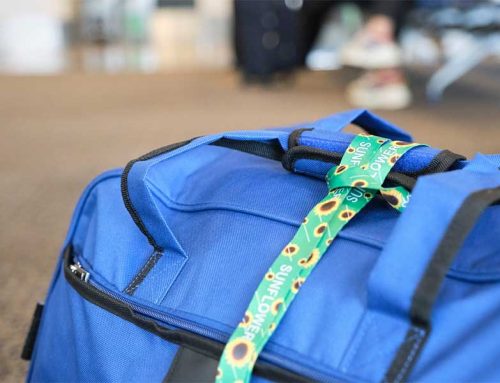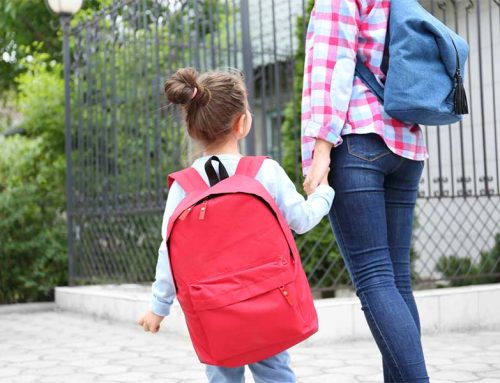It is a crying shame that a week dedicated to accepting autism is necessary. Surely, in this day and age, we should be accepting of everyone – irrespective of differences?
The fact of the matter is that acceptance is needed now more than ever. With the rise of celebrity diagnoses it is apparent that autism is a condition to be recognised and understood, instead of stigmatised and vilified.
Where did it begin?
In 1943 Leo Kanner, an Austrian-born scientist, wrote a paper where he used the term ‘infantile autism’. It was used to describe children who displayed specific behaviour traits which, in his opinion, were rare. Kanner was a passionate humanist. He dedicated his life to child psychiatry and fought tirelessly against the abuse of autistic children. In 1949 Kanner used the term ‘Refrigerator Mother’ to describe a mother who was cold and uncaring towards their autistic child. This term was de-bunked, of course, but it caused a vast amount of pain and sadness for families affected by autism.
Refrigerator mother by need not choice.
However, as a parent of a child with autism, I can understand the term and why these parents were unjustly labelled. From a young age my son would struggle with instructions. If I asked him to do something, it would need to be asked in a clear, succinct and simple way:
“Mason, go to your bedroom and get your school shoes please.”
I had tried the fluffy, mummy talk:
“Darling, could you pop to your room and get your school shoes please? Oh, you are a good boy, thank you.”
However, the latter would confuse him. Sometimes he would ask me to repeat the question, but other times I would have to repeat myself. There were occasions when I would get a blank stare. Changing my delivery to allow him to understand the task resulted in a better outcome. Using his name to make a request helped me to make a verbal connection with him, which garnered his attention. A child’s ability to retain information is finite, so getting to the point and removing the ‘fluffy stuff’ was essential.
My parenting skills differed greatly to the way that I had bought up my non-autistic daughter. We had, and still have, a wonderful connection. Holly is an affectionate, bubbly, beautiful ball of energy who lights up a room with her smile.
Mason was very different. He did not like to be kissed or be shown affection. As a child he would stand a few feet away and bow his head so a kiss could be proffered on his forehead, which he would swiftly wipe away. As a family we found this to be an amusing pattern of behaviour, a quirk, a whimsy that was specific to him.
By the time he reached nursery school he had an extensive vocabulary and he was extremely artistic. I arrived to pick him up after his morning session and the assistant asked to speak to me:
“Mason drew this today.” (Cue Mason’s hand-drawn gondola). She went on:
“We didn’t even know what a gondola was!”
He was able to tell the nursery staff and children what a gondola was used for, which country they derived from and why they were a daily mode of transport. His ability to soak up and retain information was staggering.
After his autism diagnosis, a few years later, I began to understand that Mason was unique and distinctive. He was an extraordinarily intelligent, creative and wonderful little boy who had opened up a whole new world to me and the entire family unit. That did not, however, prevent me from worrying about how the world would accept him and all his idiosyncrasies.
Nancy Arvizu wrote a blog entitled: ‘It doesn’t affect you until it affects you’. There is an abundance of truth in that title. It would be fair to say that my knowledge and understanding of autism was limited up until Mason’s diagnosis. Nonetheless, it propelled me to learn more and discover ways to educate myself on how I can adapt to his needs.
The latter part of the previous paragraph, in bold type, is paramount. His needs were and are different. They do not fit into a neat, compartmentalised box and it was essential that this was at the forefront of my mind and anyone else who came into contact with Mason.
The National Autistic Society provides ‘five tips for supporting pre-school children’. It also produces a magazine, manages an online forum and offers free information, advice and guidance for families, parents, carers and individuals affected by autism.
Suggestions for parent/carers.
Over the years, I have been asked by parents what they can do to help their child. I offer suggestions that worked for me and my son:
- Observe, listen and learn – I was able to discover what did and did not work for my son by following this simple mantra. This helped me to nurture a positive growth mindset within our family unit.
- Do not force it – Just because my daughter did things a certain way did not mean that it would work the same for Mason. Experiment with them but do not force or be dogmatic, which goes back to the first suggestion – learn and adjust to help integration.
- Celebrate their uniqueness – Everyone is remarkable. We all have spiky profiles that highlight our differences. Acknowledging their distinctive way of seeing the world through different coloured lenses is awe-inspiring.
- Focus on strengths – Using strengths helps to encourage communication. I may have heard about the history of the Viking invasion a gazillion times, but listening helps my son to speak out loud on a topic that motivates him. Plus, his extensive hippocampus of history has helped out at a few quiz night competitions!
I may be a ‘Refrigerator Mother’, when I need to help my son understand a request or instruction, but he knows that I love him unconditionally. Autism came into our lives unexpectedly, but it has been welcomed and accepted with open arms. There have been challenges and there may be many more, but with love, support and guidance I know he will go on to live a remarkable and extraordinary life because he is autistic.
Reviewed by Dr Monica Shaha, Consultant Psychiatrist (MB, ChB, MR Psych).






I have been diagnosed at a relatively late age (54!) with ADHD and am being treated by the wonderful people in PsychiatryUK.
Before my diagnosis, a neighbour (who has become a close friend) who has a son with autism and has recently been diagnosed with autism herself, mentioned that she thought I may be on the Autism spectrum, as over time she has noticed ‘traits’ within me which suggest I could be, and although not formally diagnosed with Autism I recognise those traits now that they have been pointed out.
With regards to the above article, I totally agree with the author that Autism isn’t a condition needing ‘acceptance’ and feel that “World Autism Acceptance Week” isn’t the most appropriate choice of name: I would far prefer “World Autism AWARENESS Week – i.e. to encourage people whose own lives aren’t touched by Autism to find out more about this condition which, understandably, remains a mystery to the majority of people.
With ‘awareness’ comes ‘acceptance’ which is why I very much prefer this alternative title.
This is my own view; I’d be interested to know if anyone else (in particular the author of the article) agrees?
Thanks again to the PUK team for all your help and support,
– Lynne Chapman
As it is, I have a dia